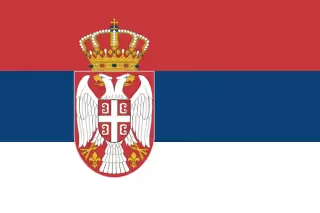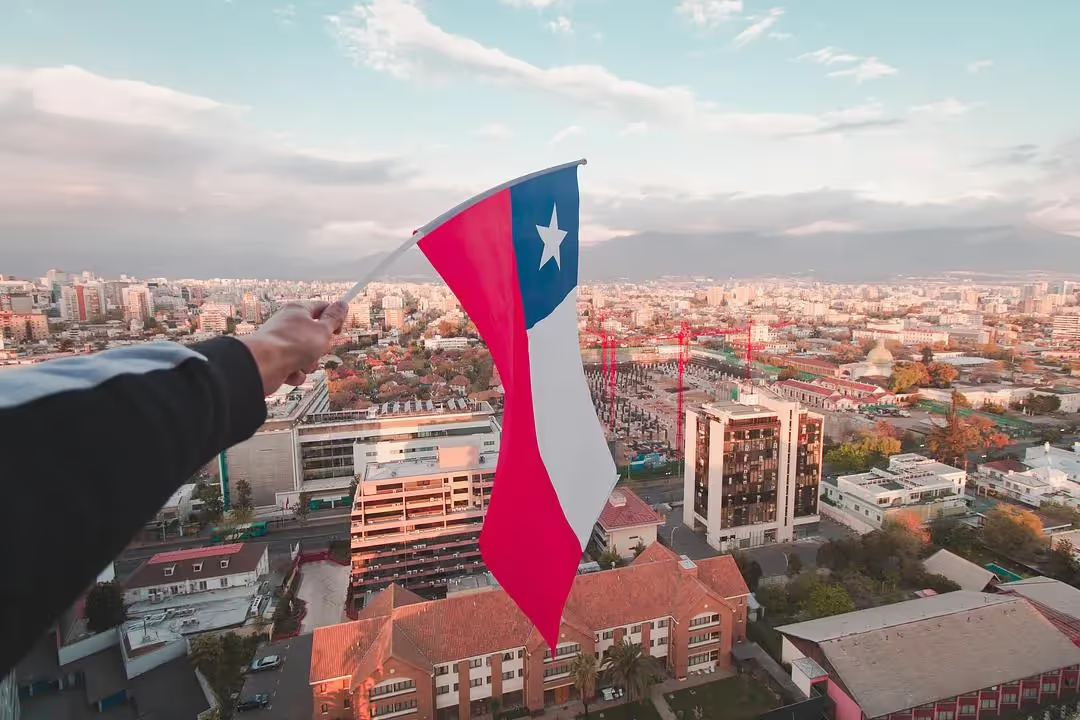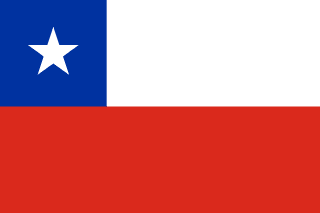

Employer of Record Guide in Serbia
Navigating the hiring landscape in Serbia can be complex, but with the right insights, you can streamline your process. Discover how to compliantly hire top talent and manage your workforce effectively in this growing European market.
Capital City
Currency
Languages
Population size
Services available in this country:

Key stats and facts
Serbia offers a compelling mix of skilled talent and competitive costs, with major economic hubs like Belgrade and Novi Sad driving growth across tech and traditional industries. Understanding the local market dynamics—from tax structures to in-demand skills—is essential for successful expansion.
Major economic hubs
Skills in demand
Currency
Language
GDP per Capita
Standard Tax Rate
Your EOR guide in Serbia
From payroll cycles to leave entitlements, Serbian employment law has specific requirements that can make or break your hiring success. This comprehensive guide breaks down everything you need to know about compensation, benefits, and compliance to hire confidently in Serbia.
Minimum Wage
The national minimum wage in Serbia is 47,154 RSD per month as of 2024. This applies to all employees working full-time hours and is subject to annual government review and adjustment.
Note: Writers should verify the current minimum wage rate with the Serbian Ministry of Labour as rates are updated annually.
Payroll Cycle
Serbian employers typically follow monthly payroll cycles, with salaries paid by the 15th of the following month. Some companies may opt for bi-weekly payments, but monthly remains the standard practice.
Individual Income Tax
Serbian personal income tax operates on a progressive system:
| Income Bracket (RSD/year) | Tax Rate |
|---|---|
| Up to 2,227,200 | 10% |
| Above 2,227,200 | 15% |
Additional considerations:
- Tax-free allowance: 19,300 RSD per month
- Resident vs non-resident: Different rates may apply based on tax residency status
Tax Residency Criteria
Individuals are considered Serbian tax residents if they:
- Spend more than 183 days in Serbia during a calendar year
- Have their centre of vital interests in Serbia
- Are Serbian citizens with permanent residence in Serbia
Tax residents pay Serbian income tax on worldwide income, while non-residents pay only on Serbian-source income.
Employer Payroll Contributions
Serbian employers must make several mandatory contributions on top of gross salaries:
| Contribution Type | Rate | Purpose |
|---|---|---|
| Pension and Disability Insurance | 11% | Retirement and disability benefits |
| Health Insurance | 5.15% | Healthcare coverage |
| Unemployment Insurance | 0.75% | Unemployment benefits |
| Total Employer Contributions | 16.9% | Minimum total |
Note: Additional contributions may apply for specific industries or circumstances.
Working Hours
The standard working week in Serbia is 40 hours, typically distributed as 8 hours per day over 5 days. Key regulations include:
- Maximum daily hours: 8 hours (can extend to 10 hours with employee consent)
- Weekly maximum: 40 hours standard
- Rest periods: Minimum 30 minutes for shifts over 6 hours
- Weekly rest: Minimum 24 consecutive hours
Overtime Pay
Overtime compensation in Serbia is regulated as follows:
- Overtime rate: 126% of regular hourly wage
- Night work: 126% of regular wage (10 PM - 6 AM)
- Weekend work: 110% of regular wage
- Holiday work: 110% of regular wage plus compensatory time off
Maximum overtime limits:
- 4 hours per day
- 8 hours per week
- 240 hours per year
Bonus Payments
Bonuses in Serbia are subject to the same tax and social contribution rates as regular salary. Common bonus types include:
- Performance bonuses
- Annual bonuses (13th salary)
- Holiday bonuses
All bonuses must be included in employment contracts if they are guaranteed payments.
Full-Time vs. Part-Time
- Full-time: 40 hours per week
- Part-time: Less than 40 hours per week with proportional rights and benefits
- Fixed-term contracts: Maximum 24 months with possibility of one renewal
Vacation Leave
Serbian employees are entitled to annual leave based on their length of service:
| Years of Service | Annual Leave Days |
|---|---|
| 0-5 years | 20 working days |
| 5-15 years | 22 working days |
| 15+ years | 25 working days |
Additional considerations:
- Leave must be taken within the calendar year or by June 30 of the following year
- Employees receive full salary during annual leave
- Unused leave must be compensated upon termination
Sick Leave
Serbian sick leave is managed through the social insurance system:
- Duration: Up to 365 days for the same illness
- Compensation:
- Days 1-30: 65% of average salary (paid by employer)
- Days 31+: 60% of average salary (paid by social insurance)
- Medical certification: Required from the first day of absence
Maternity Leave
Serbia provides comprehensive maternity and parental leave:
Maternity Leave:
- Duration: 365 days total
- Distribution: Can be shared between parents after initial 45 days for mother
- Compensation: 100% of average salary for first 26 weeks, then reduced rates
Paternity Leave:
- Duration: 7 days immediately after birth
- Compensation: 100% of salary
Parental Leave
After maternity leave, parents can take additional parental leave:
- Duration: Until child reaches 3 years (unpaid after initial period)
- Job protection: Position must be held open
- Flexibility: Can be taken by either parent
Bereavement Leave
Serbian law provides bereavement leave for:
- Immediate family: 5 working days (paid)
- Extended family: 1-2 days (paid)
- Compensation: Full salary maintained
Personal & Family Leave
Additional leave entitlements include:
- Marriage leave: 5 working days
- Moving residence: 2 working days
- Blood donation: 1 day per donation
- Emergency family situations: As needed (unpaid)
Termination Types
Termination with Cause:
- Serious breach of work duties
- Criminal conviction
- Prolonged absence without justification
- No notice or severance required
Termination without Cause:
- Redundancy/economic reasons
- Reorganisation
- Requires proper notice and severance
Notice Period Requirements
Notice periods vary based on employment duration:
| Length of Employment | Notice Period |
|---|---|
| Up to 2 years | 15 days |
| 2-5 years | 30 days |
| 5-10 years | 45 days |
| Over 10 years | 60 days |
Severance Pay
Severance pay requirements:
- Minimum: 1/3 of monthly salary for each year of service
- Maximum: 10 monthly salaries
- Calculation: Based on average salary over last 3 months
Probationary Periods
- Maximum duration: 6 months
- Notice during probation: 5 days
- No severance: Required during probationary period
Final Pay Requirements
Employers must provide final payment within 30 days of termination, including:
- Outstanding salary
- Unused vacation pay
- Severance pay (if applicable)
- Any other accrued benefits
Anti-Discrimination & Retaliation Laws
Serbian labour law prohibits termination based on:
- Gender, race, religion, or nationality
- Pregnancy or maternity leave
- Trade union membership
- Filing complaints against the employer
National Public Holidays
Serbia observes the following national holidays:
| Holiday | Date | Notes |
|---|---|---|
| New Year's Day | January 1-2 | Two-day holiday |
| Orthodox Christmas | January 7 | Religious holiday |
| Statehood Day | February 15-16 | National holiday |
| Orthodox Easter | Variable | Friday, Saturday, Monday |
| Labour Day | May 1-2 | Two-day holiday |
| Armistice Day | November 11 | National holiday |
Holiday Pay Rules
Employees working on public holidays receive:
- 110% of regular wage plus compensatory time off, or
- 200% of regular wage without compensatory time
Regional Variations
Some municipalities may observe additional local holidays, but these are not mandatory for private employers unless specified in collective agreements.
Required Documents for Employment
Employment Contract Must Include:
- Job description and duties
- Salary and benefits
- Working hours and location
- Probationary period (if applicable)
- Termination clauses
Employee Documentation:
- Valid identification (passport or ID card)
- Tax identification number
- Social insurance number
- Educational certificates (if required)
- Work permit (for non-EU citizens)
Language Requirements
- Official language: Serbian (Cyrillic and Latin scripts accepted)
- Employment contracts: Must be in Serbian
- Workplace communication: Serbian is standard, though English may be used in international companies
Background Checks & References
Background checks are permitted but must be:
- Relevant to the position
- Conducted with employee consent
- Compliant with data protection laws
- Limited to criminal records for sensitive positions
Data Protection & Privacy
Serbian data protection follows EU GDPR principles:
- Consent required: For collecting and processing personal data
- Data minimisation: Only collect necessary information
- Security measures: Appropriate technical and organisational safeguards
- Employee rights: Access, correction, and deletion of personal data
IP Assignment & Confidentiality
Employment contracts should include:
- Intellectual property clauses: Assigning work-related IP to employer
- Confidentiality agreements: Protecting business information
- Non-compete clauses: Limited duration and scope (typically 1-2 years)
Onboarding Timeline
| Step | Timeline |
|---|---|
| Job offer accepted | Day 0 |
| Employment contract signed | Day 1-3 |
| Work permit obtained (if needed) | Day 5-15 |
| Social insurance registration | Day 1-7 |
| Tax registration | Day 1-7 |
| Payroll setup completed | Day 7-10 |
Worker Classification: Employee vs. Contractor
Serbian law strictly distinguishes between employees and independent contractors:
Employees:
- Work under employer control and supervision
- Receive regular salary with social benefits
- Protected by labour law
- Employer pays social contributions
Contractors:
- Work independently with own tools and methods
- Invoice for services provided
- Responsible for own taxes and contributions
- Limited labour law protection
Misclassification can result in penalties and retroactive payments of social contributions.
Unionisation & Collective Agreements
- Union membership: Voluntary but common in larger companies
- Collective agreements: May override standard labour law provisions
- Sector agreements: Apply to entire industries
- Strike rights: Protected under Serbian law with proper procedures
Cultural Norms & DEI Expectations
Serbian workplace culture emphasises:
- Hierarchy and respect: Formal communication with superiors
- Work-life balance: Family time is highly valued
- Religious observances: Orthodox Christian holidays are widely observed
- Direct communication: Straightforward feedback is appreciated
Remote Work Considerations
Remote work in Serbia requires:
- Written agreement: Specifying remote work conditions
- Equipment provision: Employer responsibility for necessary tools
- Health and safety: Employer must ensure safe working conditions
- Working time tracking: Same regulations apply as office work
- Data security: Enhanced measures for remote access to company systems
Cross-border considerations:
- Tax implications for remote workers
- Social insurance coverage
- Labour law jurisdiction issues
Built-in benefits packages for Serbia
When the world is your competition, it pays to incentivize new hires and existing alike. Borderless AI benefits packages typically inlucde:

Medical Insurance

Dental Insurance

Retirement Contribution

Life Insurance

Vision Insurance
Explore other countries

Unlock global hiring potential
Simplify your payroll and hiring processes today.








